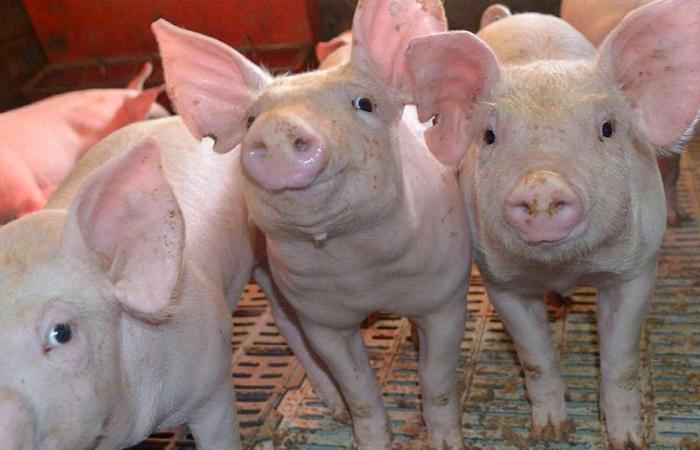Today is celebrated National Pork Day. The province of Neuquén promotes this activity through investments, programs, training and free technical advice.
Pork production in the province of Neuquén, like in the rest of the country, is carried out mostly by small producers. From the universe of ventures, three producers stand out with more than 100 mother sows and one with more than 1,000.
The government of the province of Neuquén provides technical assistance to more than 100 producers located in Añelo, Aluminé, Arroyito, Las Lajas, Plottier, Centenario, Neuquén, Senillosa, Rincón de los Sauces, San Patricio del Chañar, PicúnLeufú and Chos Malal .
The service is provided through the technicians of the PyME-ADENEU Center, dependent on the Ministry of Economy, Production and Industry and, like the training, the technical advice is mainly related to animal management, health and nutrition.
On National Pig Farming Day, Ariel Garralda, representative of the Pork program of the PyME-ADENEU Center, explained that “the services we provide from the program have no cost for the producer. In addition to seeking to ensure the productivity and profitability of the ventures, we place great emphasis on health since the animals are intended for human consumption.”
Important initiatives have also been carried out from the PyME-ADENEU Center, such as the creation of the Porcine Genetic Improvement Laboratory, in Neuquén capital, which will allow the genetics of Neuquén herds to be improved through the embryo transfer technique.
Due to the impossibility of entering animals on foot through the health barrier, this infrastructure was developed that will allow obtaining better quality animals, without endangering the health of the Patagonian region.
Projects and initiatives are also carried out to improve and reduce feeding costs, since it involves between 70 and 80 percent of the expenses of pig production.
In this sense, on the Fundación Familia property in the city of Neuquén, a balanced feed plant was set up that provides services to producers on the plateau and that supplies corn to the Paso Aguerre plant.
On the other hand, the hydroponic green forage project applied to pig feeding was launched. The proposal consists of sprouting the corn seed for two weeks instead of giving it ground to the pigs.
“This method allows us to reduce food costs by between 10 and 15 percent and it is extremely easy to prepare,” explained Garralda and specified that “the seed is allowed to sprout and becomes more digestible for the animal. Furthermore, thanks to the plant’s own photosynthesis, it produces proteins. “So we increase the amount of protein with the same cost.”
Trichinosis Surveillance Program
This year, the Provincial Government also launched the Porcine Trichinosis Surveillance and Control Program, for the period 2024-2027.
Trichinellosis is a parasitic disease transmitted by food. The causative agent is a microscopic parasite that resides in the meat of most carnivorous, omnivorous and some herbivorous animals. It is transmitted to man and animals only through the consumption of meat with Trichinella.
This disease, if not controlled, can affect from one to several people with varying degrees of severity and even death.
The program is coordinated by the Provincial Entry Control of Food Products (Cippa) and has the participation of different organizations such as the SME-ADENEU Center, Senasa, provincial Bromatology, the provincial Fauna directorate, the Secretariat of Production and Industry and the municipalities.



